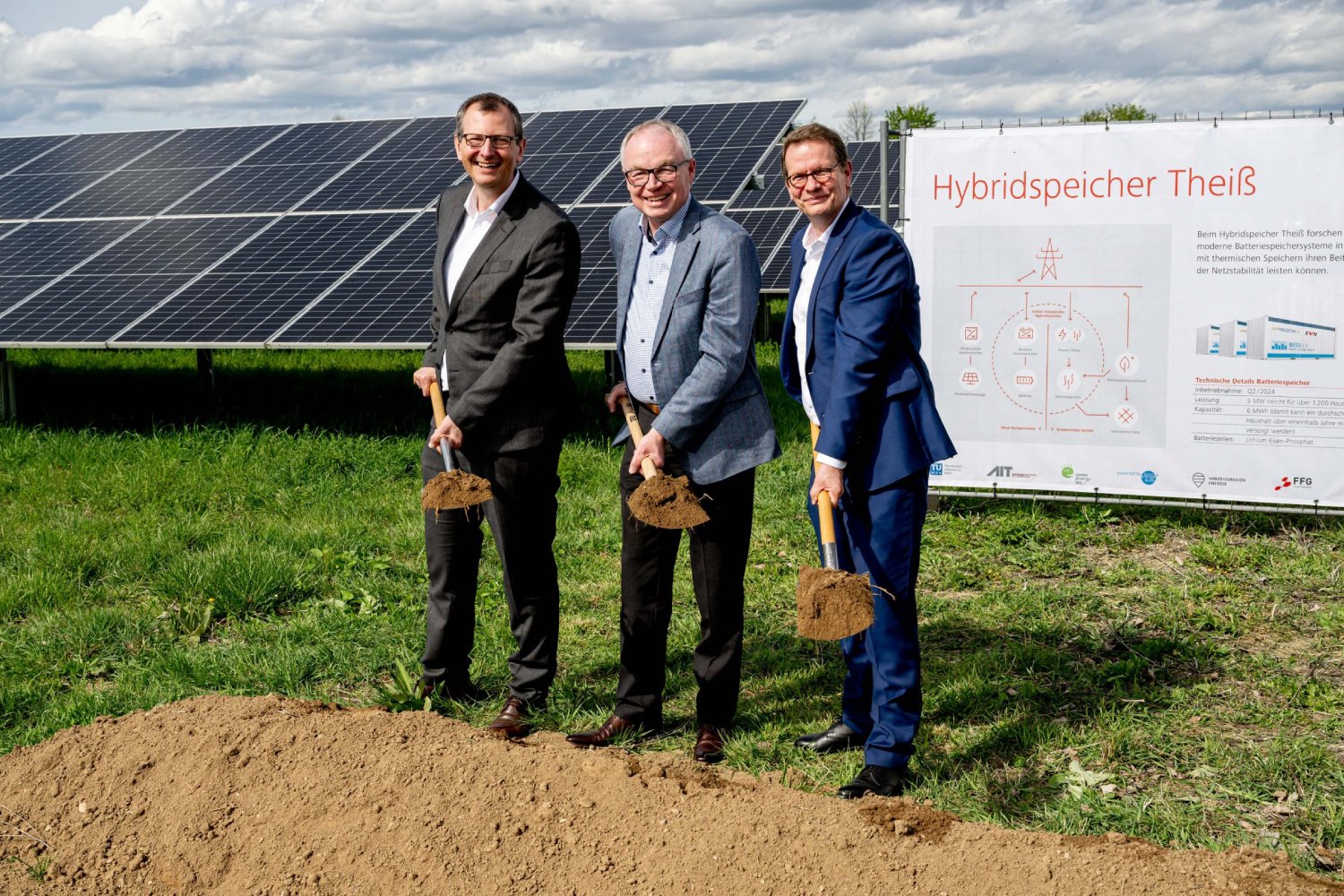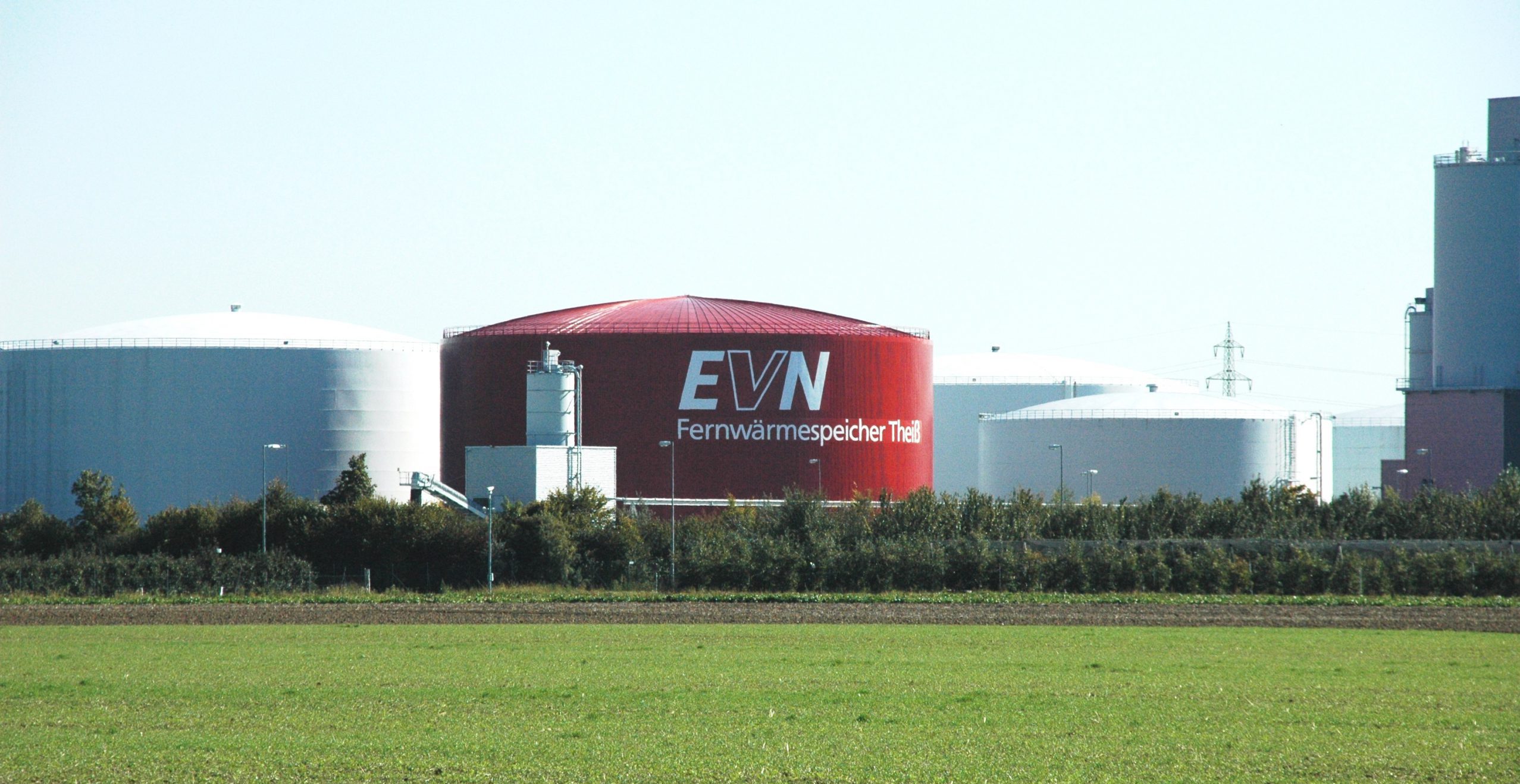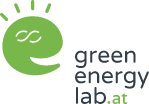Kick-off for Theiss Hybrid Storage System
Renewable energies are gaining ground at the energy hub Theiss in Lower Austria: since last year, 5,700 modules have been supplying solar power to households in the region. A new biomass plant to supply Krems with natural heat and green electricity was opened in last fall. Now EVN is taking the next step and building a hybrid storage facility.

Photo: (from left to right): EVN CEO Stefan Stallinger, Lower Austrian Deputy Governor Stephan Pernkopf, EVN CEO Stefan Szyszkowitz (© EVN / Imre Antal)
8 April 2024 – To this day, EVN’s Theiss power plant ensures a secure energy supply in eastern Austria. However, the historic site has been undergoing major changes for years. While the gas-fired power plant is now only used to support the grid, renewable energies are gradually taking over the energy hub. Since last year, 5,700 modules have been supplying solar power to households in the region. A new biomass plant to supply Krems with natural heat and green electricity was opened in the fall.
Now EVN is taking the next step: a hybrid storage system is being built: “With the ever-increasing share of renewable energies, the need for innovative and more powerful energy storage systems is also increasing,” explains EVN CEO Stefan Szyszkowitz and adds: “One forward-looking application is the combination of different storage technologies to form a hybrid storage system.”
Deputy Governor Stephan Pernkopf also sees the need for such large-scale storage systems: “We are already well on the way to expanding renewable energies in Lower Austria. In the final meters, we need innovative storage solutions like here in Theiss.”
What is a hybrid storage system and what are the major benefits of this innovation project?
Due to the massive expansion of renewable energies in recent years, there are now always times when more green electricity is produced than is consumed. There are alternatives before the green electricity is sent long distances via the grid infrastructure, necessitating additional grid expansion or even switching off green electricity plants. One option is to store electricity in batteries. Another is to use electricity to heat and use hot water. A few years ago, EVN built the so-called energy converter, which uses surplus electricity from renewable energies to produce heat for Lower Austrian households. The heat generated can be temporarily stored in the Theiss district heating storage facility if it is not needed immediately. This large thermal storage facility is Austria’s largest district heating storage facility, a specially insulated former oil tank with a capacity of 50,000 m³ of hot water.
“The hybrid storage system combines the advantages of these two types of storage,” explains EVN CEO Stefan Stallinger. “We stabilize the electricity grid and make a significant contribution to security of supply. At the same time, we can intelligently convert surplus electricity into thermal energy with almost 100% efficiency. This makes it storable and usable at different times. An absolutely key technology for the sustainable conversion of our energy system.”

Theiß district heating storage facility with a capacity of 50,000 m³ of hot water © EVN
Another major benefit is that the optimized operation and the new biomass power plant in Krems can significantly reduce the use of auxiliary gas boilers for the secure heat supply of Krems and Gedersdorf, thereby saving many thousands of tons of CO₂. In order to supply Krems with district heating, the waste heat from the Theiss thermal power plant was previously used. Now that the power plant is only needed to maintain grid stability, it is no longer in base load operation and other sources of heat generation are therefore also required. “The Theiss hybrid storage facility is the next step towards a sustainable energy future: optimal use of domestic resources and less gas imports from abroad,” said Pernkopf.
The hybrid storage system and its technical details
The innovative hybrid storage system consists of a thermal and a large-scale electrical battery storage system. Technically speaking, an existing 5 megawatt electric heating system, which is connected to a large thermal storage system, is expanded with a multifunctional 5 megawatt battery energy storage system. If there is a surplus of energy in the power grid, the electric heating system is activated, or if the demand is higher than the current generation, energy is drawn from the battery storage system. The hybrid storage system thus ensures a stable grid and makes it possible to balance out fluctuating generation from renewable energy sources. “The intelligence of the system was developed in-house,” says Szyszkowitz proudly.
The project is being carried out in cooperation with the Green Energy Lab
Green Energy Lab is a research initiative for sustainable energy solutions and part of the Austrian innovation offensive “Vorzeigeregion Energie” of the Climate and Energy Fund. With the core regions of Vienna, Lower Austria, Burgenland and Styria, the Green Energy Lab has a test market of around five million end consumers, making it Austria’s largest “innovation laboratory” for a sustainable energy future.
More than 400 participating partners from research, business and the public sector are working together with the four provincial energy suppliers Wien Energie, EVN, Burgenland Energie and Energie Steiermark to develop customer- and demand-oriented, scalable solutions – from prototype to market maturity. Direct access to the energy suppliers’ core market means that new developments can be tested directly on a large scale. By 2025, over 150 million euros will be invested in innovative projects as part of the Green Energy Lab.
More Information on the Sekohs Theiß project.
